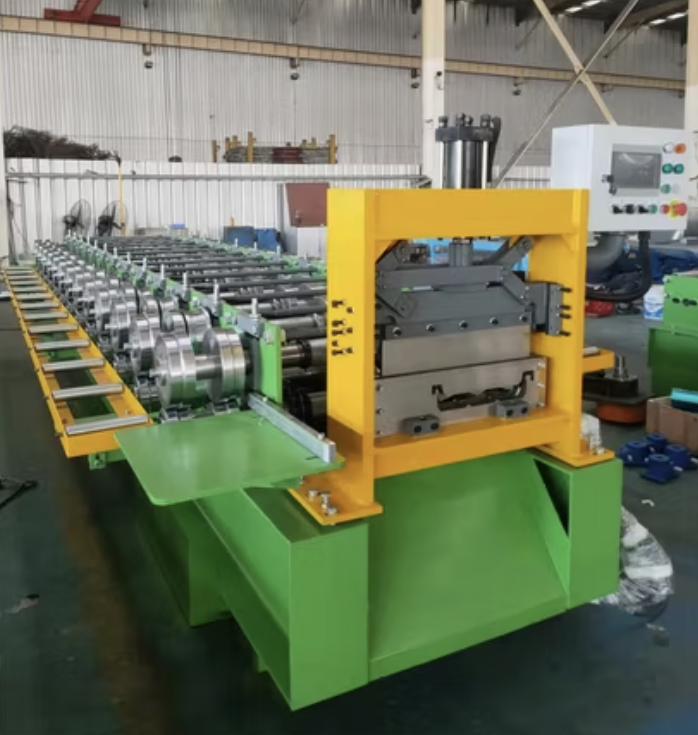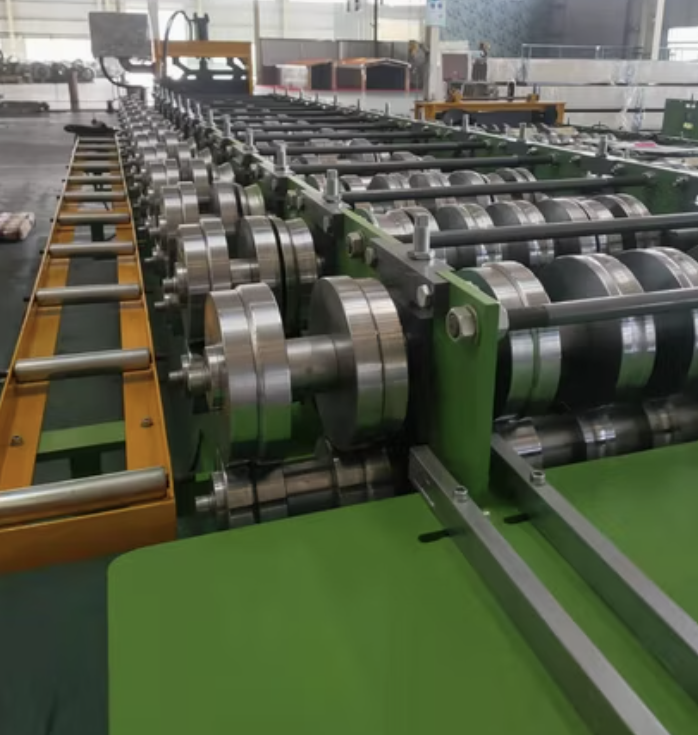To express an interest in this machine please submit the form below.

Not Sure What Machine You Need?
Select Your Profile, We'll Match It
Choose your desired profile drawing, and let Machine Matcher connect you with the best roll forming machine tailored to your needs.
Browse Profiles



A roofing roll forming machine is a specialized piece of equipment designed to fabricate metal roofing panels by shaping coiled sheet metal into desired profiles through a continuous rolling process. These machines play a vital role in the construction industry, offering efficiency and precision to produce roofing panels suitable for commercial, industrial, and residential buildings. Roofing roll forming machines are available in a variety of configurations, enabling customization based on different panel profiles, material types, and thicknesses.
Q1: What types of roofing profiles can be produced with a roofing roll forming machine?
A1: Most machines can produce profiles like standing seam, corrugated, trapezoidal, and metal tile. Some machines offer changeable molds or tooling to switch between multiple profiles.
Q2: Can a roofing roll forming machine work with different materials?
A2: Yes, these machines are generally compatible with various metals like galvanized steel, aluminum, copper, and zinc. However, it’s essential to confirm material compatibility based on the machine’s capacity.
Q3: How do I select the right machine for my roofing panel production needs?
A3: Key factors include the type of profile required, material thickness, machine speed, and automation features. Consulting with suppliers to customize the machine specifications based on your production goals is beneficial.
Q4: What is the maintenance requirement for a roofing roll forming machine?
A4: Regular maintenance includes lubrication, checking alignment of rollers, cleaning components, and ensuring safety features are functional. Scheduling routine checks can prolong the machine’s life and maintain product quality.
Q5: How long does installation and setup take?
A5: Installation can range from a few days to a couple of weeks, depending on the machine complexity and the site’s readiness. Professional installation services and proper training ensure efficient and safe operation.
Q6: Are there options for automated production?
A6: Many roofing roll forming machines come with automation options, such as PLC-controlled systems, automatic stackers, and coil handling systems, to enhance productivity and reduce manual intervention.
Q7: What are the power supply requirements for these machines?
A7: Power requirements typically range between 380V to 415V, three-phase. However, specifications vary, so checking compatibility with your facility’s power supply is essential.
Copyright 2026 © Machine Matcher.